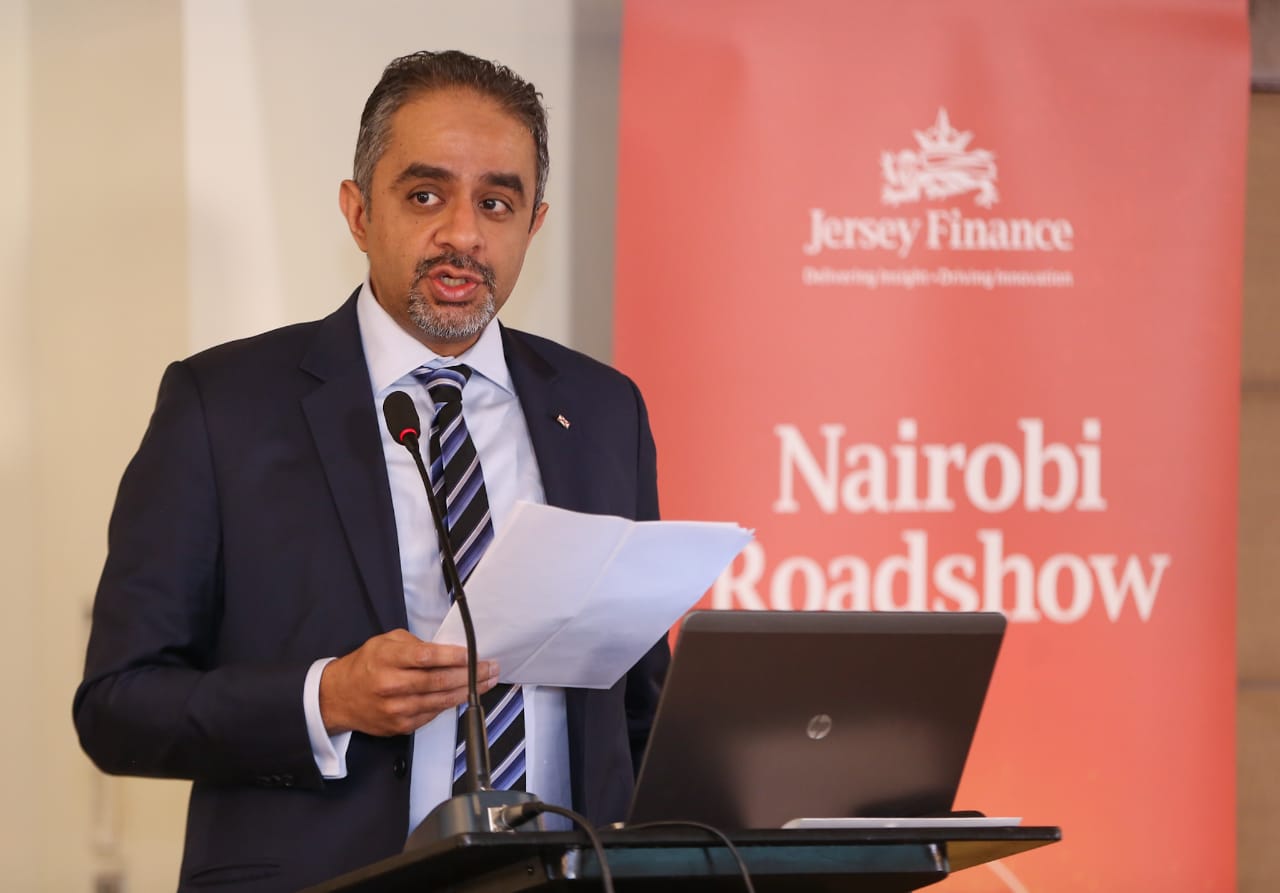
Interview with Faizal Bhana – Director – Middle East, Africa and India Jersey Finance.
Interview with Faizal Bhana, Director, Middle East, Africa and India, Jersey Finance, delves into the evolving landscape of family businesses and how they navigate the diminishing trust advantage amid rising ESG (Environmental, Social, and Governance) demands and NextGen aspirations.
- How has the use of trusts evolved for family businesses over the past decade?
Over the past decade, the use of trusts has evolved significantly for family businesses. Increased regulatory scrutiny and transparency demands have led to more structured governance frameworks and a more planned approach. Families are increasingly using trusts to manage succession, mitigate long-term risks and ensure long-term sustainability. This evolution reflects a broader trend towards professionalising family businesses, while always maintaining the core values and legacy that define them.
One of the most significant events in the last decade to impact the family business landscape was the global COVID-19 pandemic. It underscored the importance of integrating the next generation, or NextGen, into the family business because sadly, many families experienced tragedies, losing their patriarch or matriarch. This then propelled their NextGen into senior roles and for some, this happened reluctantly. The effects of the pandemic highlighted the critical importance of succession planning and governance for business continuity.
In Africa, family businesses make a considerable contribution to the economic prosperity of the continent, and this is likely to continue in the long-term too. Take Kenya, for example, research by Asoko tells us that Kenya boasts close to 500 family-owned businesses that generate revenues surpassing the US$10 million mark. It’s one of the reasons financial services firms in Jersey’s award-winning International Finance Centre (IFC) have been working with Kenyan families and businesses for more than a decade. It’s also why Jersey Finance held a series of events in Kenya over the last two years, both in Nairobi and Mombasa during which advisers discussed the trends and themes they are hearing about in the family business landscape, nationally in Kenya, regionally across East Africa and further afield, both continentally in Africa and beyond.
In Jersey, the trusts and asset-holding vehicles sector is by far the largest in terms of assets administered, estimated at £1.14 trillion in 2020. A key reason Jersey remains highly attractive to international private wealth clients is the stability and quality of Jersey’s trust law, a template adopted by many other jurisdictions worldwide.
- What factors contribute to the diminishing trust advantage for family businesses?
In Jersey and London, advisers have witnessed a trend towards the use of PTCs by East Africa family businesses. As the professionalisation and sophistication of family businesses grows, and the scale and complexity of family affairs increase, Private Trust Companies (PTCs) are emerging as a practical and attractive option for them. PTCs are attractive to family businesses because they offer a tailored approach to wealth management that allows alignment with the family’s evolving needs.
I would not suggest there is a general diminishment in the advantages of using trust structures, however, I am aware of several structural challenges faced by family businesses. It is the case that recent regulatory changes introduced in Kenya, for example, have removed some of the structural advantages of the Kenyan trust structure, including tax advantages. However, this is only the case for some types of trusts. It is better to consider why, in the first instance, family businesses choose to use trust structures.
Challenges for family businesses include a lack of robust succession planning and good governance strategies, poor management as well as challenges with the integration of the next family generation (‘the NexGen’) – generational shifts within families often bring different perspectives and priorities, which can create internal conflicts. All of these factors, if not correctly addressed at an early stage, could potentially limit family business growth and reduce their lifespan.
At the same time, regulatory and political landscapes are becoming increasingly complex and those working to advise families must adapt and be ready to navigate an ever-changing business environment.
Why is this important now? Many family businesses in Africa are reaching a critical stage in their succession – second, third and even fourth generation family members are already being integrated into business operations. Conversely, NextGen may want to avoid involvement in their family business or its operation.
Planning, managing and executing succession plans are vital to ensuring continuity – for the family business and the region’s economy. Formal and planned transitions that are transparent and agreed in consultation with the whole family help smooth the process; they bring harmony between management and shareholders, reassuring that the company’s culture remains intact and its long-term strategy remains aligned with the business’s ambitions. Transition arrangements are vital, whether or not family members wish to continue to be involved in running the business itself or to leave the responsibility with non-family management.
- What are the key aspirations of the NextGen in family businesses?
The advisory community I work with in Africa, India and the Middle East, as well as recent research commissioned by Jersey Finance on The Kingdom of Saudia Arabia, indicate that NextGen family business members aspire to drive innovation, embrace sustainability and make a positive societal impact.
NextGen prioritise digital transformation, ethical practices and have a stronger focus on environmental, social, and governance (ESG) criteria. What characterizes NextGen is their truly global outlook. They seek to balance profitability with purpose, ensuring the business remains relevant and responsible in a rapidly changing world.
Their digital exposure, which brings to life different beliefs and systems to the business, gives NextGen a competitive edge which is an advantage in the ever-changing financial market landscape.
Exploring the Kenyan context, I have analysed the background and significance of the Waqf principle in engaging NextGen within family businesses, specifically in situations where religious belief, in this case adherence to Islamic principles, is a prerequisite. What sets Jersey’s IFC apart from other jurisdictions in relation to Islamic Finance, is its inherent compatibility with a wide array of Shari’a-compliant structures and contracts, including encompassing Awqaaf, within the existing legal framework. In Jersey, we successfully support families from across the globe that wish to incorporate their religious and ethical beliefs and traditions within their overall succession and governance plan.
- How can family businesses involve NextGen in strategic decision-making?
The first step for family businesses to consider is to engage and procure credible, experienced and trusted expertise. The wealth advisory community who works with African family businesses should consider involving the NextGen. It is the adviser’s role to have a long-term vision and be innovative and agile; they will need to be attuned to the changing mood of governments, consumers and investors, who now have sustainability firmly embedded in their minds.
Educating NextGen family business owners on governance and business operations ensures NextGen members are well-prepared to contribute effectively, blending fresh perspectives with established wisdom of founder generations.
Equally, the succession plans and governance should be flexible enough to accommodate those NextGen who may not necessarily want to be involved in the day-to-day management or running of the family business but instead prefer to limit their involvement at the strategy level. Good governance should provide parameters to allow this in a transparent and fair way.

- Why is ESG integration crucial for family businesses today?
ESG integration is crucial for family businesses today, particularly for NexGen who have ESG firmly embedded in their minds.
By aligning to global sustainability trends and stakeholder expectations, family businesses enhance their long-term resilience, mitigate risks and open themselves up to new opportunities for growth.
By integrating ESG practices and principles, forward-thinking family businesses demonstrate a commitment to responsible business, which is increasingly important for attracting talent, investment and customer loyalty.
In terms of governance (the G in ESG) for family businesses, what we can learn from colossal failures of once booming family businesses, and there are plenty of examples of this in Kenya, is that family businesses that fail to put in place robust governance and succession planning, at the death of the founder, are most likely going to end up in prolonged legal battles, bitter family disputes and the ultimate destruction and significant downscaling of their business.
Working with experienced advisors who can support the family in future-proofing their businesses by setting up robust governance processes is one way families can mitigate the risks associated with poor governance.
- How can family businesses leverage ESG practices to attract international finance and enhance their reputation?
Family businesses can leverage ESG practices by demonstrating their commitment to sustainability and ethical governance.
For family businesses in Africa, to attract international finance or investments, careful planning and engaging experienced experts early provides the foundations for the preservation and protection of the family business, thus ensuring its continued…
